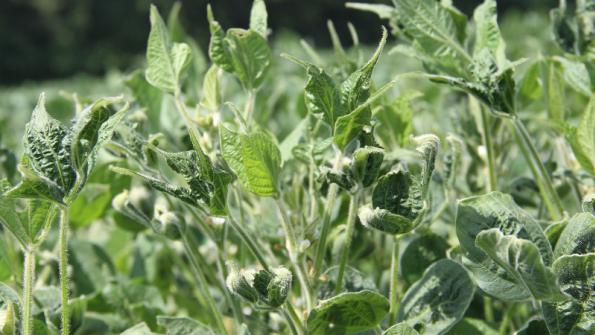
Three days prior to Thanksgiving, new regulations to address dicamba drift easily cleared the Arkansas Plant Board.
The 2016 timeline for the new regulations began when dicamba-tolerant soybeans and cotton were approved for planting. At the same time, both long-existing and new dicamba product formulations – promised to be less volatile and prone to harm off-target crops – were prohibited for use in the new seed technology.
Many in the Mid-South did not heed the spraying prohibition and a rash of dicamba drift incidents followed.
Shortly after, the Arkansas Plant Board began to consider options to deal with the problem. In late summer, the board’s Pesticide Committee sent the full panel a list of proposals that were unanimously approved on Nov. 21.
The next day, Otis Howe, Arkansas Plant Board chairman, spoke with Delta Farm Press. Among his comments:
On the vote…
“Based on what we heard in the public comments, the feedback we got in writing, the 12-0 vote didn’t surprise me at all. That was a lot of support for our decision from the public and the underlying weed science that was explained by university experts.
“I think the process worked really well yesterday. It’s the way we’ve done it for 100 years and it works.”
To the governor
On where things stand now…
“The way I understand it, this is in the governor’s hands now. The governor has issued an executive order that stipulates rules adopted by an agency must be reviewed by him. The Plant Board is part of the Arkansas Department of Agriculture and so we fall under the executive branch.
IT’S FREE! Stay informed on what’s happening in Mid-South agriculture: Subscribe to Delta Farm Press Daily.
“The rules cannot proceed until they are reviewed and approved by the governor. If approved by the governor for further promulgation then they will be presented to the Legislative Council for final review. If the council approves, the rules will be filed with the Secretary of State. They become effective 10 days after that filing (Act 1258 of 2015).”
On where increasing fines for illegal herbicide applications stand…
“An increased penalty proposal was not sent to the governor yesterday. The three things that were sent: being able to sell foundation rice seed in clean bulk bags, the rules on dicamba and Enlist Duo, and the Plant Board being able to ask whoever they want to provide data in order to make best decisions. We’ve always done that last item but wanted it in writing.
“In the Plant Act, the law we operate under, it spells out who the 14 members of the Plant Board are. It provides the power, once state law is passed, for the Plant Board to enact rules and regulations based on those laws.
“In the Plant Act, the Plant Board is able to assess civil penalties on individuals who violate regulations. Right now, the maximum penalty is $1,000.
“A Plant Board committee worked on the civil penalty and brought their report to the full board during our last meeting. We accepted that report and their proposal is to raise the civil penalty to $25,000. That’s the number that’s been bandied around.
“Ultimately, though, that has to be done by the state legislature. They would have to change the law to give us the authority to increase civil penalties.”
Multiple steps
On what would happen if the law is changed…
“If they give us the authority to assess higher penalties on people we find in violation of state regulations, then each individual committee of the Plant Board would consult a penalty matrix. We all have a matrix we use and that usually means a first violation warrants a warning letter. The penalties increase from there -- again, right now, the highest financial penalty is $1,000.
“So, each committee would have to consider the matrix and decide if they want to increase the penalties. Those discussions and considerations would include participation by members of the industry segment that are subject to the regulation.
“For an egregious act – and we’re so early in this, we’d still have to define what constitutes ‘egregious’ – the committee would work through the language and vote on whether, and how, to increase the civil penalty matrix.
“Then, from the committee level, it would go to the full Plant Board for a vote. From there, if it passed, it would go to a public hearing to see what people have to say. The full board would then vote on whether to put the new penalties into effect. It’s a bunch of steps.”
Is it possible to have increased penalties in place prior to the 2017 growing season?
“The state legislature would have to change the law during the next session, which is set to begin after the first of the year. If they did that, the Plant Board committees – seed, pesticide, pest control, all the committees -- could begin meeting and start the rule-making process outlined earlier.
“So, it could possibly be done but it is highly doubtful.”
About the Author(s)
You May Also Like




